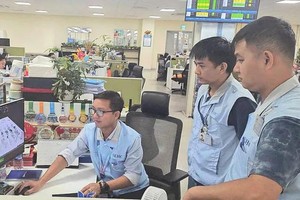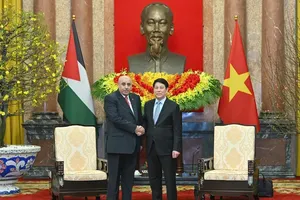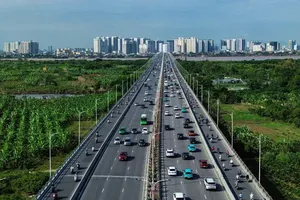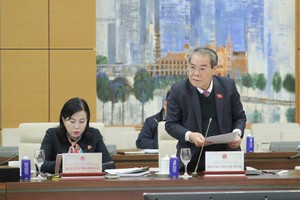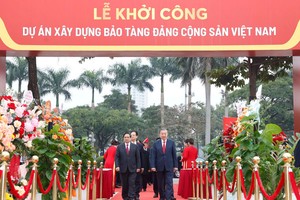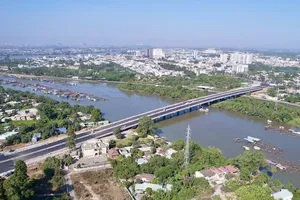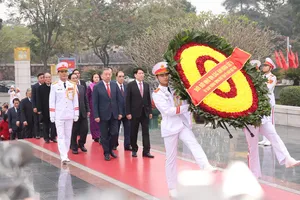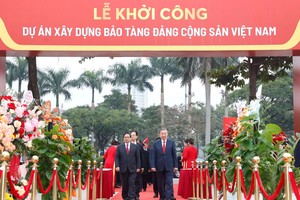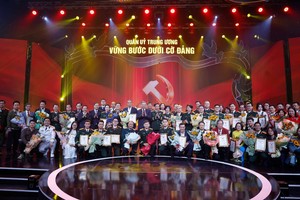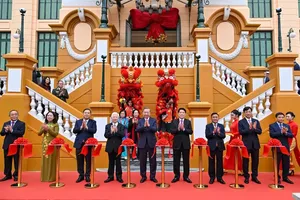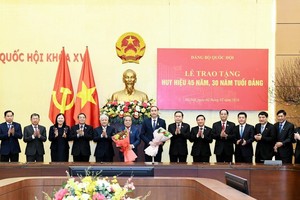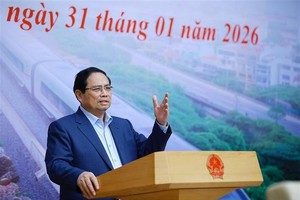Following the merger, the population has expanded considerably, resulting in heightened responsibilities and challenges for grassroots officials and civil servants. In spite of these escalating demands, numerous officials, civil servants, and Party members have stepped up, showcasing remarkable leadership and dedication through their efforts.
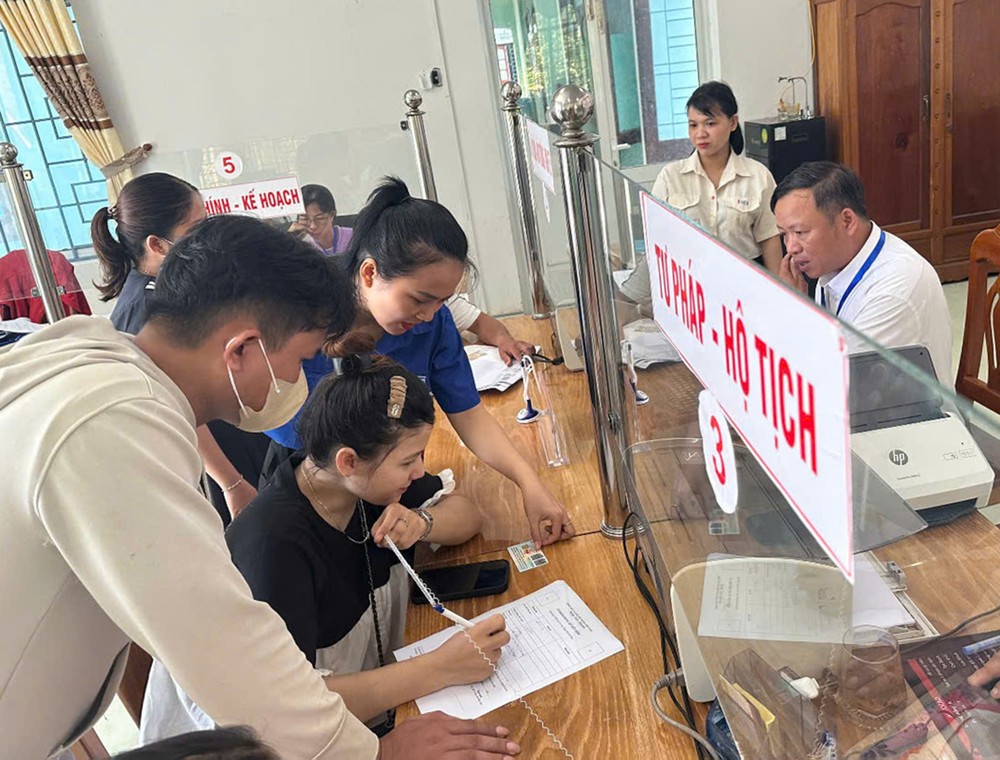
As soon as forecasts indicated that Storm No. 3 (Wipha) would significantly affect the northern and north-central provinces—particularly from Quang Ninh to Quang Tri—local officials, civil servants, youth, and police in these areas swiftly took action to assist residents in coping with the natural disaster. In Hung Yen Province, the provincial leadership quickly established several delegations to assess and strengthen response strategies, particularly in high-risk zones.
Secretary Nguyen Huu Nghia of the Hung Yen Provincial Party Committee promptly assigned the Department of Agriculture and Environment to spearhead the creation of a Zalo group that included all key stakeholders. This facilitated real-time updates and coordinated responses to developing situations. The approach of one locality setting an example was encouraged so that others could learn and react promptly to similar challenges.
A young official from A Sao Commune of Hung Yen Province said that local authorities launched increased awareness campaigns, early warning systems, and training for storm preparedness through social media, fan pages of youth organizations, and local loudspeaker systems to disseminate updates and practical skills.
Additionally, he added, the local administrations provided infographics, videos demonstrating disaster response techniques, and lists of necessary supplies. They have made every effort to implement measures that could safeguard lives and property—no one waited for instructions.
This proactive approach—actively pursuing tasks instead of waiting for instructions—is progressively bridging the gap between local governments and their citizens, as illustrated by stories like these from across the nation.
In June 2025, residents of Saigon Gateway Apartment Complex in Tang Nhon Phu Ward of Ho Chi Minh City expressed their long-standing concerns. A single message sent to the city leadership triggered immediate action. Chairman of the Ho Chi Minh City People's Committee Nguyen Van Duoc quickly instructed relevant departments to investigate and provide a report within the month.
By June 24, the Department of Construction had submitted a comprehensive report. Although the issue is still unresolved, the rapid developments indicate a significant change in responsiveness motivated by the top city leadership’s dedication to listening and taking decisive action.
Previously, Permanent Deputy Secretary of the HCMC Party Committee, Nguyen Thanh Nghi, also received messages from residents of Tan Hong Ngoc Apartment Complex in Tan Phu Ward and Vien Ngoc Phuong Nam Apartment Complex in Rach Ong Ward. Each complex faced unique grievances. Upon receiving the texts, he immediately directed relevant authorities to intervene, push forward, and handle the cases with urgency and determination.
Following the restructuring, local government apparatuses underwent significant changes in scale, organizational structure, and task allocation. During this period, advancements in information technology, digital transformation, and administrative reform requirements have compelled many officials and civil servants to relearn numerous citizen-related tasks from the ground up. This learning process is not merely about skill enhancement—it reflects a spirit of public service that learning to perform better, and to serve residents nationwide more efficiently.
The mountainous commune of Tra Doc in Da Nang City, formed by the merger of Tra Doc and Tra Bui communes, now spans 233 square kilometers and is home to over 10,400 residents. However, nearly 48 percent of households are classified as poor. The commune’s officials, drawn from the two former communes and other areas, have varying levels of experience and qualifications.
Chairman Phan Duy Hung of the Tra Doc Commune People's Committee said that to better serve local residents, administrations have established a second Public Administrative Service Center at the former Tra Bui site, as this area lies 30 kilometers from the current commune center and faces major transportation challenges. To operate this center and implement digital transformation initiatives, the staff are learning on the job sharing knowledge and mastering procedures together to ensure seamless service for the public.
Due to low digital literacy among residents, many commune officials also take on the role of guiding people through online administrative procedures when they are unable to do so themselves. The commune created a social media fanpage to answer public inquiries—saving both residents and officials time and effort.
In Tra Tan Commune, which is surrounded by mountains on all sides, four villages remain without access to the national power grid, and mobile phone signal is often unstable. Internet access is consequently limited. One of the first actions the two-tier local government took was installing free public Wi-Fi in communal areas.
Party Secretary of Tra Tan Commune Nguyen Hong Lai reported that most officials here are young, dynamic, and innovative in applying technology at work. The commune established digital support teams and tasked the Youth Union with organizing volunteer groups to assist with public services. With a high proportion of ethnic minority residents, many of whom are elderly, there are frequent difficulties in filling out forms, preparing documents, and setting up VNeID accounts. These digital support teams, along with youth volunteers, travel to remote villages—some as far as 40 kilometers away, requiring a half-day journey—to help residents on site.
The implementation of the two-tier local government model has fundamentally shifted the mindset and role of ward and commune-level officials. It now demands greater versatility and efficiency from each public servant in serving both citizens and businesses.
Minister of Home Affairs Pham Thi Thanh Tra emphasized that each official, especially at the grassroots level, must be more multi-functional, ethical, responsible, and practically service-oriented.
She added that to achieve the goals of restructuring and improving the quality of the civil service and to retain capable staff in the public sector, it's crucial that local Party and government leaders at both provincial and commune levels fully implement all relevant policies.
Moreover, according to her, the Government has recognized that the essential reorganization of administrative units will inevitably involve sacrifices and hardships. However, the Government is calling upon all dedicated civil servants to contribute and accept these personal sacrifices for the greater good of the community as staff's commitment is vital to the success of these reforms and to building a stronger, more effective public service.
